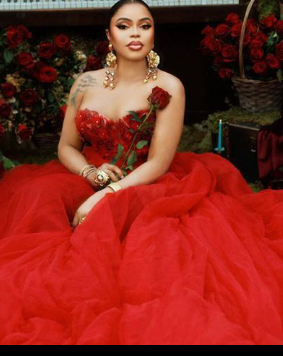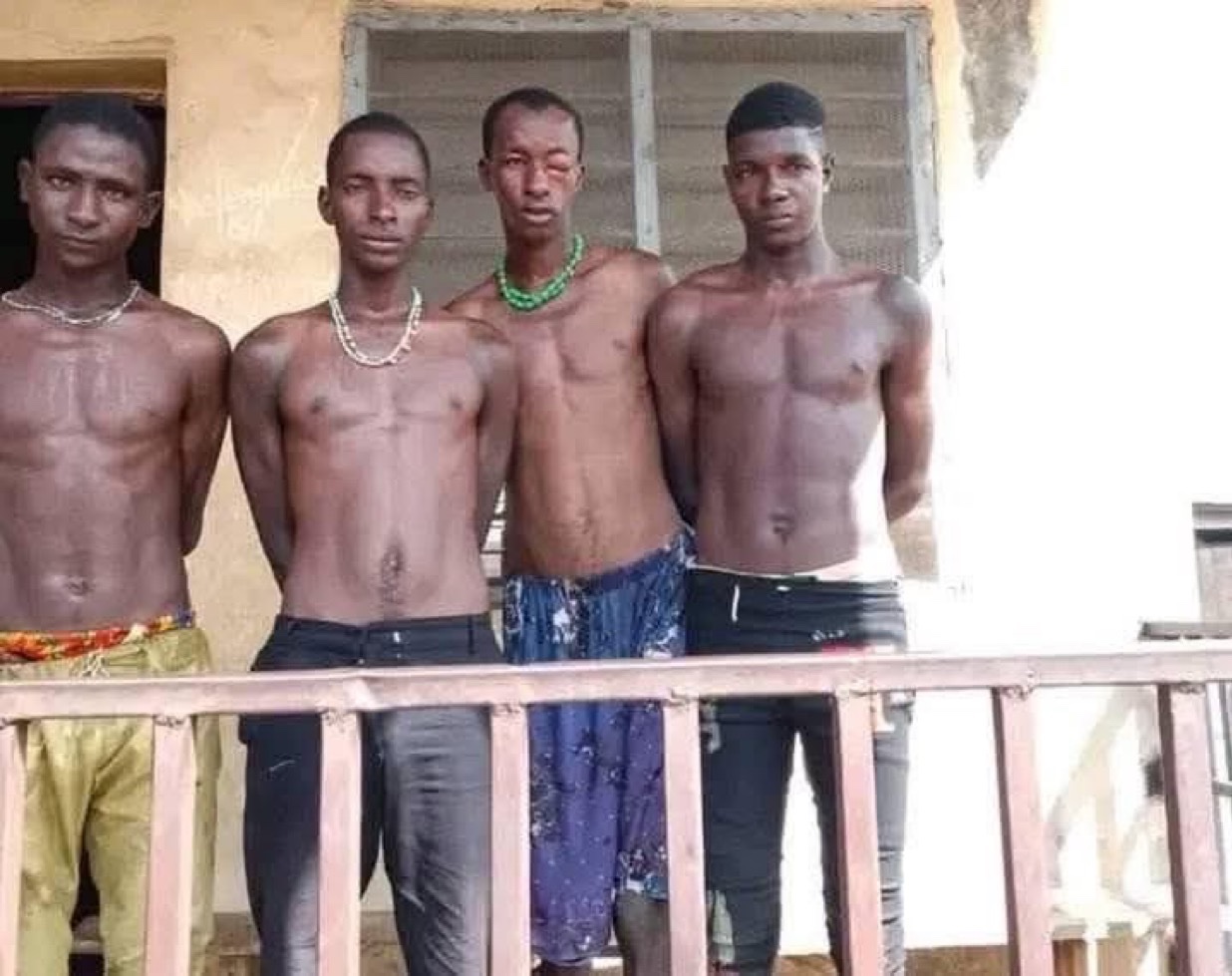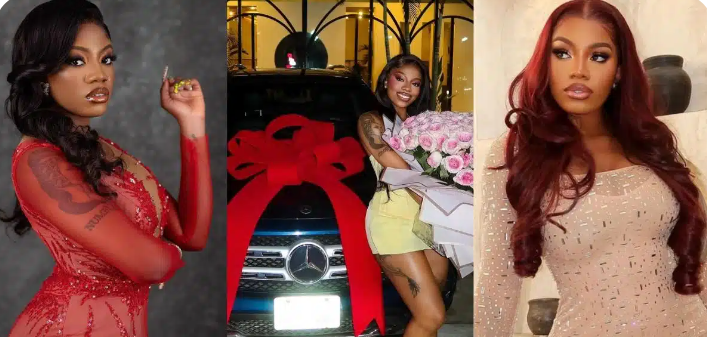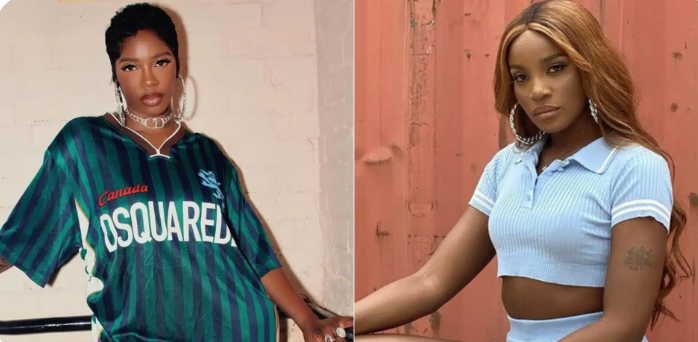
Senior Man Wahala: King Mitchy Blasts Bobrisky Over Crossdressing Influence on Young Boys

Social media was set ablaze with drama after philanthropist and restaurateur, King Mitchy, called out controversial crossdresser Bobrisky, accusing him of negatively influencing young boys and promoting unrealistic wealth fantasies. What began as a sharp criticism quickly escalated into a full-blown online feud that has gripped the attention of netizens across the country.
It all started when King Mitchy, known for his low-key acts of charity and hands-on involvement in his 24-hour restaurant, posted a message directed at Bobrisky. Mitchy accused Bobrisky of glamorizing crossdressing and misleading young boys into thinking that dressing like him would bring them sudden wealth and luxury. According to Mitchy, Bobrisky’s constant display of extravagant gifts from wealthy boyfriends sends the wrong message to impressionable youths who now believe that such a lifestyle is the key to financial breakthrough.
"Senior man, you influenced the young boys wrongly. Accept this and know peace!" Mitchy fired in one of his responses, making it clear that his issue wasn't personal but hinged on societal concern.
However, Bobrisky, never one to back down from confrontation, took offense and clapped back with his usual unapologetic flair. “You are very stupid for having the gut to tag me,” he wrote furiously. “If you are looking for public funds, why can't you keep hustling on what you do? How dare you tag me? Never in your life tag me on this rubbish again.”
The response only fueled the fire as King Mitchy refused to back down, replying with an equally fierce rebuttal. “Bobrisky I don't need a dime from the public, ask about me! I've been helping people for 3 years. For once, I never put my account on my page for donations!” he wrote, defending his philanthropic reputation and taking a not-so-subtle jab at Bobrisky’s history of soliciting public support.
The back-and-forth intensified as King Mitchy drew more attention to the real issue he claimed to be concerned about—the influence of internet personalities like Bobrisky on the youth. “Oga, you influence most of these boys to dress like you because they think they will get rich like you too!” Mitchy ranted. “You forgot when you were showing money and saying your rich boyfriend gave you millions? So now, is that a good impact? Better behave well oh.”
In what appears to be a battle between celebrity influence and real-world hustle, King Mitchy painted himself as a hardworking entrepreneur who values dignity in labor. He highlighted his commitment to his restaurant business, saying he still serves food to customers himself to stay grounded and maintain a sense of responsibility. "I hustle hard for my coin!" he declared proudly.
The social media space has since been divided. While some fans rallied behind Bobrisky, praising him for living his truth and unapologetically expressing his identity, others supported King Mitchy for calling out what they see as toxic role modeling and misleading lifestyle portrayals.
One user commented, “What King Mitchy said might sound harsh, but let’s be real. The pressure on young boys to fake it till they make it is real, and people like Bobrisky have played a role in that mindset.”
Another fan, however, defended Bobrisky, arguing, “Bobrisky doesn’t owe anyone’s child proper upbringing. Parents should be more involved and stop blaming public figures.”
This latest spat isn’t the first time Bobrisky has faced criticism over his lifestyle or perceived influence on the youth. Over the years, he has built a reputation as Nigeria’s most talked-about crossdresser, often flaunting wealth, luxury cars, lavish vacations, and mysterious sugar daddies. While his boldness has earned him both fans and endorsements, it has also made him a lightning rod for criticism, especially in a conservative society.
King Mitchy, on the other hand, represents a different side of the internet fame spectrum. Unlike many influencers, he has gained recognition for his low-profile philanthropy, feeding programs, and community outreach without publicizing donation requests or living ostentatiously. His approach to fame seems rooted in humility and hard work, which perhaps explains why his comments struck a chord with many Nigerians weary of unrealistic social media standards.
Despite the online buzz, neither party has hinted at a truce or reconciliation. In fact, both seem to be standing firm on their beliefs—Bobrisky defending his choices and lifestyle, and King Mitchy pushing back against what he believes is a harmful trend infecting the mindset of Nigerian youths.
As the dust continues to rise from this heated exchange, many are now asking deeper questions. Should social media personalities be held accountable for how their lives influence others? Where is the line between self-expression and social responsibility? Can philanthropy and morality be separated from personal beliefs and lifestyles?
Whether this is the end of the feud or just the beginning remains to be seen. But one thing is certain: both King Mitchy and Bobrisky have ignited a nationwide conversation about identity, influence, hustle, and the realities behind the glam of social media. And in this war of words, the Nigerian internet space is the battleground—loud, opinionated, and unfiltered.


